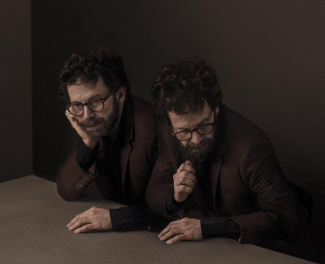Screen Writer’s Panel (SBIFF, 2016)
Viewed by Bryan Austin Gillison. Viewed at the Santa Barbara Film Festival 2016.
I was honored to attend the Screen Writer’s Panel at the Lobero theatre in Santa Barbara during the Santa Barbara International Film Festival. Pete Docter (Inside Out), Drew Goddard (The Martian), Emma Donoghue (Room), Alex Garland (Ex Machina), Jonathan Herman (Straight Outta Compton), Charlie Kaufman (Anomalisa), Phylis Nagy (Carol), and Charles Randolph (The Big Short) were all in attendance at the talk. It is a large yet somehow cozy and intimate theatre, and the screenwriters appeared to be in good spirits and ready to share their stories. I chose to share more about this talk in specific because i found the screenwriters most interesting due to their efficiency in storytelling and ability to hold attention. I found them all to be quite personable, human, and even approachable. You can see a sharpness in a writer’s eye and an attention to detail in their wit. I left with the distinct impression that these people are seeing the world in a much more precise and complex way than I might at times be seeing it.
I noticed a common thread between each of the speakers when they were asked about their rise to success. Every single one of their stories had long periods of great preparedness combined with fantastic moments of chance and willingness to take risks. It struck a real chord with me to hear these filmmakers speak about years, even decades, of hard work for little to no pay. They almost all had to take odd jobs in LA just to stay in the right place when the right time came. Then to hear that even the biggest opportunities they embarked upon were great financial risks as well was very scary as well as inspiring.
Each and every writer stressed the importance of building relationships within the industry, keeping promises, loyalty and honesty. It was interesting to hear many of those who live often solitary lives of writing emphasize the importance of those friendships and the need for outward focus as well as inward. It brought to mind the fact that you could have the most brilliant script ever written, but if no one will read it then it would never be made. It’s important to find artists to work with that have a shared goal and vision for the story to be told, not just a desire to make money or a popular film. They also noted that these people skills as well as a strong artistic vision and a hard skin come in handy due to the nature of making a film. Writing begins as a very solitary activity but as the film becomes a reality you are surrounded by collaborators.
When it comes to writing, the work may never be finished. Many of the writers admitted that even the final cut was due more to a deadline than a feeling of utter completion. Many times scripts have been worked and reworked hundreds of times before the start of filming, and often during filming itself. All of the screenwriters spoke of strong influences from American Cinema throughout their lifetimes.
Pete Docter is known for his work writing Up, Monster’s Inc, and Wall-e, a very impressive set. Emma Donoghue is most famous for her original novel Room, and her tenacity in being the first to the finish line in completing her adaptation of the story for screen. Drew Goddard worked previously on World War Z, Cloverfield, and The Cabin in the woods. Alex Garland wrote 28 Days Later. Jonathan Herman is most noted for his work on Straight Outta Compton, but he also wrote Ghost in Shell which is currently filming. Charlie Kaufman is known for Eternal Sunshine of the Spotless Mind, Being John Malkovich, and Adaptation. Phylis Nagly is best known for her work on Carol. Charles Randolph penned Love and Other Drugs as well as The Interpreter.
About this entry
You’re currently reading “Screen Writer’s Panel (SBIFF, 2016),” an entry on Student Film Reviews
- Published:
- 02.19.16 / 1pm

1 Comment
Jump to comment form | comments rss [?]